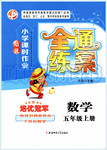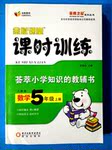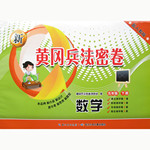题目内容
Dear John,
Thanks for taking care of my apartment while I’m away. Please feed the cat and the fish every day. The cat food is in the kitchen and the fish food is next to the cat food. Also, could you please check the cat’s water bowl? The bowl is next to his food dish. (83) The fish food is __________________.
Please water the plants twice a week. (84) 你能在星期四的时候把垃圾扔了吗? They come for the trash then. Please check my mail box for me on Wednesday, too.
If you’re hungry, have some chocolate cakes. It’s in the refrigerator. You can help yourself to the orange juice in there, too. (85) Please don’t forget to lock the door when you leave.
Thanks again for your help.
Mary
(一)根据信件内容,回答下列问题。
小题1:How often does John need to feed the cat?
__________________________________________________________________________
小题2:What does John need to cheek?
__________________________________________________________________________
(二)根据上下文,将下面的句子补充完整。
小题3:The fish food is ___________________________________________________________.
(三)把文中划线的汉语句子翻译成英语。
小题4:________________________________________________________________________
(四)把文中划线的英语句子翻译成汉语。
小题5:________________________________________________________________________
Thanks for taking care of my apartment while I’m away. Please feed the cat and the fish every day. The cat food is in the kitchen and the fish food is next to the cat food. Also, could you please check the cat’s water bowl? The bowl is next to his food dish. (83) The fish food is __________________.
Please water the plants twice a week. (84) 你能在星期四的时候把垃圾扔了吗? They come for the trash then. Please check my mail box for me on Wednesday, too.
If you’re hungry, have some chocolate cakes. It’s in the refrigerator. You can help yourself to the orange juice in there, too. (85) Please don’t forget to lock the door when you leave.
Thanks again for your help.
Mary
(一)根据信件内容,回答下列问题。
小题1:How often does John need to feed the cat?
__________________________________________________________________________
小题2:What does John need to cheek?
__________________________________________________________________________
(二)根据上下文,将下面的句子补充完整。
小题3:The fish food is ___________________________________________________________.
(三)把文中划线的汉语句子翻译成英语。
小题4:________________________________________________________________________
(四)把文中划线的英语句子翻译成汉语。
小题5:________________________________________________________________________
小题1:Every day.
小题2:Mary’s mail box.
小题3:next to the cat food(in the kitchen)
小题4:Could you take out the trash on Thursday?/Can you throw the rubbish on Thursday?
小题5:当你离开的时候别忘记锁门。
试题分析:这篇短文玛丽给约翰的一封信。玛丽请他照顾她的住所,照看猫和鱼,浇浇花。倒垃圾,还有查收邮件等。
小题1:细节理解题。根据Please feed the cat and the fish every day.可知每天要喂猫。故填Every day.
小题2:细节理解题。根据Please check my mail box for me on Wednesday,可知要检查邮箱,故填Mary’s mail box。
小题3:推理判断题。根据上下文可知鱼食在厨房挨着猫食。故填next to the cat food(in the kitchen)。
小题4:汉译英。关键词take out/throw on ,Thursday.句式为Could you…?故填Could you take out the trash on Thursday?/Can you throw the rubbish on Thursday?。
小题5:英译汉题。该句的重点词是:when,当……。forget to do 忘记做……。故答案是当你离开的时候别忘记锁门。

练习册系列答案
 小学课时作业全通练案系列答案
小学课时作业全通练案系列答案 金版课堂课时训练系列答案
金版课堂课时训练系列答案 单元全能练考卷系列答案
单元全能练考卷系列答案 新黄冈兵法密卷系列答案
新黄冈兵法密卷系列答案
相关题目
